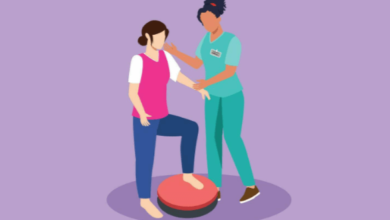Tips for Minimizing Zepbound Side Effects During Treatment

Week one on Zepbound: the scale drops, but so does your stomach
Let’s be honest—starting a new medication like Zepbound is both exciting and nerve-wracking. You’re hopeful. Motivated. Maybe even a little skeptical.
But a few days in, your stomach starts staging a protest. Nausea creeps in. Food feels unappealing. You’re suddenly Googling “Zepbound side effects” at 2 a.m. while sipping ginger tea and wondering if this is just part of the deal.
Spoiler: Some side effects are common—but many are manageable. And knowing how to stay ahead of them can make all the difference in how your body adjusts and how successful your treatment becomes.
Here’s how to ease the bumps on your journey.
1. Start Low and Go Slow (Seriously—Don’t Rush It)
Zepbound (tirzepatide) works in part by slowing gastric emptying and mimicking hormones that help regulate blood sugar and appetite. That’s great news for weight loss. But it also means your digestive system is adjusting to a whole new rhythm.
The number one rule? Follow your dosing schedule to the letter. Most treatment plans begin with a low dose that gradually increases. This isn’t just for efficacy—it’s to minimize side effects like nausea, bloating, and indigestion.
Going too fast too soon? That’s how you end up curled around a heating pad.
2. Eat Smaller, Simpler Meals
Your appetite will likely change. You may feel full faster. Listen to your body.
But even more importantly, watch what you eat and how much at once. Rich, greasy, or high-fat foods can intensify symptoms. Instead, stick with:
- Small, frequent meals
- Lean proteins
- Cooked vegetables
- Easily digestible carbs (think: plain rice, toast)
Try not to eat large meals late in the day. And if you’re tempted by that spicy taco truck? Maybe save it for later.
3. Stay Hydrated—But Smartly
Mild nausea can be made worse by dehydration—and vice versa.
Drink water consistently throughout the day, not just when you’re thirsty. If plain water is tough to keep down, try:
- Herbal teas (ginger or peppermint work wonders)
- Electrolyte-enhanced drinks
- Sipping instead of gulping
Avoid sugary sodas and carbonated drinks, which can make bloating worse.
4. Watch for Your Body’s Red Flags
While most Zepbound side effects are mild and resolve as your body adjusts, some deserve more attention. Call your provider if you experience:
- Persistent or severe vomiting
- Signs of dehydration (dizziness, dry mouth, reduced urination)
- Abdominal pain that’s sharp or radiating
- Yellowing of the skin or eyes (rare, but serious)
Your healthcare provider will know whether symptoms are typical or a signal to pause, adjust your dose, or explore alternatives.
5. Get Moving (But Don’t Overdo It)
Exercise can ease bloating, constipation, and general discomfort.
But we’re not talking about marathon training here. Gentle movement—like walking, stretching, or yoga—can help your digestive system regulate itself and reduce side effects.
Think of it as helping your body recalibrate, not pushing it to perform.
6. Keep a Symptom Journal
Not everybody responds the same way to Zepbound. What causes nausea for one person might go completely unnoticed by another.
That’s why it’s smart to keep a simple log of:
- What you ate and when
- Your symptoms and their severity
- Medication dose/timing
- Fluid intake and sleep habits
This can help you and your provider spot patterns and tweak your care plan accordingly.
7. Ask About Anti-Nausea Meds (Don’t Be a Hero)
If nausea is significantly interfering with your daily life, talk to your doctor. There are several safe medications that can reduce GI discomfort during the adjustment phase.
You’re not expected to power through every symptom. Support exists for a reason—and using it can keep you on track with your long-term goals.
8. Mental Health Check: Be Kind to Yourself
Starting a new treatment—especially for weight loss or metabolic issues—isn’t just physical. It can stir up emotions, doubts, impatience.
Remember: progress isn’t linear. You’re learning how your body works in real time.
Give yourself grace. Ask for support. Celebrate small wins, like days with fewer side effects or consistent water intake.
And yes, remind yourself why you started in the first place.
The Bottom Line: Discomfort Is Common—But Manageable
Zepbound has shown powerful results in clinical studies. But the road to success isn’t paved in gold—it’s often paved with ginger chews, soup nights, and trial and error.
The good news? Most Zepbound side effects ease over time. And with the right strategies—and a bit of patience—you can stay on track and feel more in control of your health journey.




